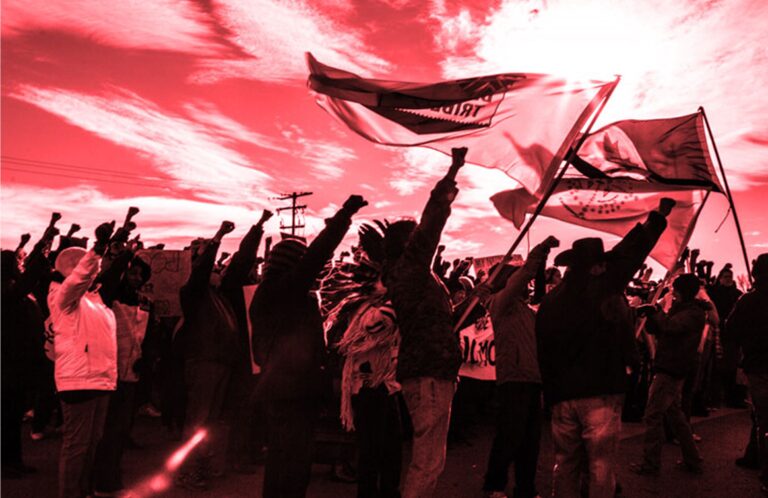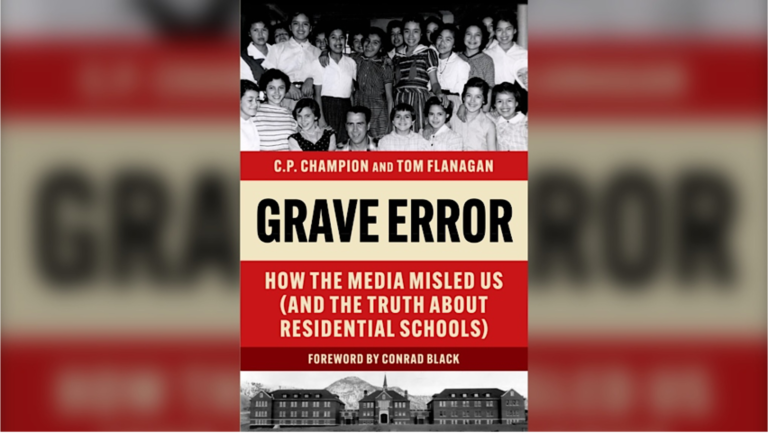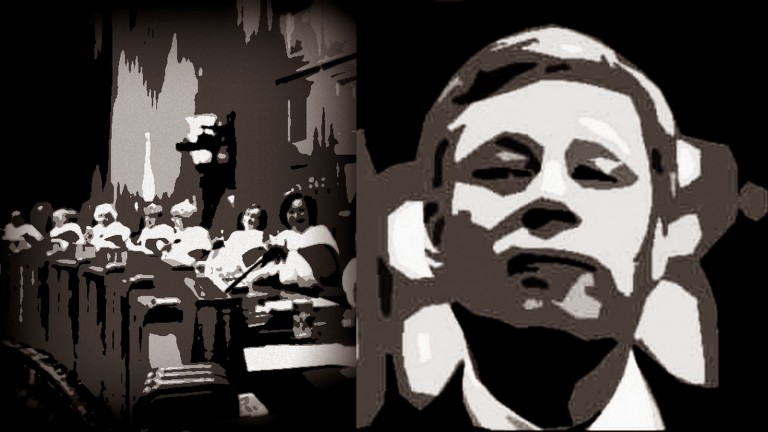Hopeful claim: Hundreds of thousands of Muslim immigrants who have arrived in Canada from strife-torn countries over the past few decades have integrated into Canada’s multicultural society so successfully that Canadians have little reason for concern about a terrorist attack by homegrown Islamist extremists.
Certainly, the Canadian Security Intelligence Service (CSIS) disagrees. For years, it has focused primarily on combatting “home-grown Islamist extremism,” which the agency defines as “a threat which refers to the indoctrination and radicalization of young Canadians into the violent ideology espoused and inspired by Al Qaeda.”
Of the 24 people who have been charged under Canada’s Anti-Terrorism Act, 75 per cent are Canadian citizens. And all but two of the 14 Canadians convicted under the Act were Al-Qaeda inspired, homegrown Islamist terrorists, including all 11 of the terrorists who were found guilty in the plot by the so-called Toronto 18 in 2006.
The Toronto 18 conspiracy was not, as many Canadians suppose, just some lurid amateurish fantasy. By the time of the ringleaders’ arrest, they had developed a sophisticated plan to set off two massive, remote-controlled one-tonne bombs in downtown Toronto as well as a third at an unidentified military base outside the city.
In sentencing Zakaria Amara, the principal bombmaker for the Toronto 18, to life imprisonment, Mr. Justice Bruce Durno of the Ontario Superior Court of Justice noted that if CSIS and the police had not foiled this diabolical plot,
The results would have been catastrophic. What this case revealed was spine-chilling. … [T]he potential for loss of life existed on a scale never before seen in Canada …. Had the plan been implemented it would have changed the lives of many, if not all Canadians forever.
Among other alleged homegrown Islamist terrorists in Canada is Khurram Sher, a medical doctor and graduate of McGill University who was born and raised in Montreal. On August 25, 2010, he was arrested in London, Ontario, and charged along with two other Muslim Canadians – Misbahuddin Ahmed and Hiva Mohammad Alvizadeh, both of Ottawa – with engaging in a terrorist conspiracy to build remotely controlled improvised explosive devices for use within Canada. In announcing the arrests, RCMP Chief Superintendent Serge Therriault warned: “This group posed a real and serious threat to the citizens of the National Capital Region and Canada’s national security.”
Following the arrests, then public safety minister Vic Toews warned: “Canada is not immune to terrorism. We are not immune from international or homegrown radicalization. I have said this before: The threat is real and we cannot be complacent.”
In a concurring editorial, The Globe and Mail opined:
What terrifies in the terrorism arrests announced yesterday in Ottawa is that the Islamists’ call to mass murder, if the accusation is true, was accepted by a McGill University-trained medical doctor who loves hockey and sang on Canadian Idol. Even those individuals who seem to be, and may in fact be, well integrated into their communities, may not be immune to the lure of jihad. This is not new to other parts of the world, notably Britain, but it is a shock for Canada, an open, integrated society that likes to think its openness protects against violence and radicalism of all kinds.
Sher, Ahmed and Alvizadeh are currently in jail awaiting trial.
Meanwhile, earlier this year, Canadians were shocked again to learn that two young Muslims from London, Ontario, had died while taking part in a deadly terrorist attack on an Algerian gas plant in January 2013 that resulted in the deaths of 37 workers and 29 terrorists. Xristos Katsiroubas and Ali Medlej, the young men in question, were both raised in London, Ontario, and attended the same local high school. Many Canadians wondered what could have induced these two, in many ways average, teenagers from London to embrace radical Islam and a life of murderous jihadi violence.
Dr. Wael Mahmoud Haddara, board member at the London Muslim Mosque, professed bafflement. In an interview with The London Free Press, he said: “We need to understand these kids. What was their movement like, who did they talk to? Could we have had a better grasp of this earlier?” Haddara speculated that perhaps they had not been radicalized in London, but through the Internet:
You get exposed to the Youtube [sic] video. You have someone who can become angry, but they are not radicalizing the kids to say this is something you should do. But they are compelled by this new-found sense of honour and purpose to go out and seek other people.
Haddara is well known among Muslim leaders across Canada as a past president of the Muslim Association of Canada (MAC), an organization headquartered in Mississauga, Ontario, that has chapters in 11 Canadian cities. In a promotional video on the Web site of the London MAC Youth Centre, Haddara describes the organization as a social club for young Canadians:
It is not a place where they come to be isolated and sort of do their own thing but really a place to come where they can grow their skills, build their confidence and welcome other young Canadians of whatever stripe, or go out into the broader whole that is Canada and engage the rest of society more constructively and really contribute to a more vibrant and richer social fabric.
Imam Jamal Taleb of the London Muslim Mosque and Dr. Munir El Kassem, internationally prominent Imam of the Islamic Centre of Southwest Ontario and former Muslim chaplain at Western University, are also featured on the promotional video as supporters of the London MAC Youth Centre. Clearly, this is no fringe group. It has the solid backing of the city’s mainstream Muslim establishment.
The same goes for the prominence of MAC in other Canadian cities. In Toronto, for example, MAC marks the end of Ramadan by hosting the largest annual Eid festival in the city. According to MAC:
The events attract over fifteen thousand attendees and have been honoured with respected community members and politicians including Hon. Premier Dalton McGuinty, Mayor David Miller, the Hon. Kathleen Wynne (Minister of Education), Conservative leader Mr. John Tory and other ministers.
Last year, Ontario NDP leader Andrea Horwath also addressed the annual gathering.
By any reckoning, the Muslim Association of Canada is a major national Muslim organization. But is it, as depicted by Haddara and others, altogether benign?
There is good reason to wonder, especially in view of the candid disclosure on MAC’s national web site that the organization’s “modern roots can be traced to the vigorous intellectual revivalist effort” within Islam that began in the early 20th century and culminated within the Arab world “in the writings of the late Imam Hassan al-Banna and the movement of the Society of Muslim Brothers (commonly known as the Muslim Brotherhood).” The MAC statement continues: “Al-Banna’s core messages of constructive engagement in society, focus on personal and communal empowerment, and organizational development had a deep impact on much of the Muslim world.”
That al-Banna’s core messages have had a deep impact throughout the Muslim world is beyond doubt. In Knowing the Enemy: Jihadist Ideology and the War on Terror, Mary Habeck, Associate Professor of Strategic Studies in the School of Advanced International Studies at Johns Hopkins University, lists al-Banna as one of the three most influential 20th-century Islamist ideologues (the two others being Sayyid Qutb and Sayyid Abul A’la Mawdudi). Together, she says, this trio has done the most to inspire “even the more extreme jihadist beliefs” among radical Islamists.
Leaders of the Islamist Resistance Movement, (popularly known as Hamas), hold “[t]he Martyr, Imam Hassan al-Banna, of blessed memory” in such high regard that they have seen fit to quote his declamation in the Hamas Covenant: “Israel will exist and will continue to exist until Islam will obliterate it, just as it obliterated others before it.”
In founding the Muslim Brotherhood in 1928, al-Banna hoped the organization would serve to liberate Egypt from the British, battle the Zionists and eventually join in a Muslim attack on the West. In a jihadist tract reproduced on the Web site of Young Muslims of Canada, he states his bellicose declaration:
Western secularism moved into a Muslim world already estranged from its Qur’anic roots, and delayed its advancement for centuries, and will continue to do so until we drive it from our lands. Moreover, we will not stop at this point, but will pursue this evil force to its own lands, invade its Western heartland, and struggle to overcome it until all the world shouts by the name of the Prophet and the teachings of Islam spread throughout the world. Only then will Muslims achieve their fundamental goal.
In Jihad, another tract included in the online library of Young Muslims of Canada, al-Banna makes clear that in his view, jihad entails fighting and violence. He states: “The verses of the Qur’an and the Sunnah of Muhammad … summon people in general (with the most eloquent expression and the clearest exposition) to jihad, to warfare, to the armed forces, and all means of land and sea fighting.” Al-Banna adds, “Jihad is an obligation from Allah on every Muslim and cannot be ignored nor evaded. Allah has ascribed great importance to jihad and has made the reward of the martyrs and the fighters in His way a splendid one.” How splendid? Citing another Muslim authority, al-Banna promises:
The martyr possesses six distinctions with respect to Allah: he is forgiven, amongst the first to be forgiven; he is shown his place in Paradise [sic]; he is not punished in the Grave [sic]; he is secure from the supreme terror of the day of judgment; the crown of dignity is placed on his head, a single ruby of which is more precious than the entire world and all it contains; he is wedded to seventy-two of the women of heaven; and he may intercede for seventy of his relatives.
In addition to Jihad and several other writings by al-Banna, Young Muslims of Canada also commends essays by Mawdudi and Qutb. Of particular note is Qutb’s Milestones, an abridged version of a lengthy commentary he wrote on the Koran, which, according to Habeck, “became a bestseller in extremist circles and would provide much of the ideological and theological foundation for modern jihadism.”
What, one might wonder, is the purpose of Young Muslims of Canada? In its mission statement, the organization purports: “Through inspiring programs and activities Young Muslims [of Canada] will nurture God-conscience Muslim youth who are outstanding contributors to Canadian society.”
Only the naive and misinformed can take that statement at face value.
As for the Muslim Association of Canada, how can an organization that purports that it “respects all faiths and Canadian institutions, traditions, and values” promote the ideology of a violent Islamist such as al-Banna, who called for a Muslim war on the West and the eradication of the state of Israel? In May, Charles Lewis of the National Post reported that Haddara had explained that MAC’s “interest in Hassan al-Banna is only in terms of his theology, not his political views, and nor [sic] does it have any ties with the Muslim Brotherhood.”
That suggestion is, to say the least, implausible. Al-Banna’s Islamist theology can no more be separated from his politics than Lenin’s communist philosophy can be separated from his revolutionary violence. Anyone who is at all acquainted with al-Banna’s theological fulminations must know that they are suffused with violent antipathy to the Western ideals of freedom, democracy and constitutional government.
It is also noteworthy that between 2001 and 2010, the Muslim Association of Canada transferred $296,514 to the International Relief Fund for the Afflicted and Needy (Canada), an organization also known as IRFAN-Canada. On March 9, 2011, the Canada Revenue Agency deprived IRFAN-Canada of its charitable status on the ground that “IRFAN-Canada provides support to Hamas, a listed terrorist organization.”
Would Haddara have us believe that he and his colleagues on the board of the Muslim Association of Canada knew nothing about IRFAN-Canada’s support for Hamas?
As reported in The London Free Press on September 13, 2013, Haddara now acknowledges that he played a key role as a public-relations adviser during the presidential-election campaign of Mohamed Morsi, the deposed Egyptian president and Chairman of the Freedom and Justice Party, an organization founded by the Muslim Brotherhood. After the election, Haddara also served as an official “Adviser to the President” and alternative representative of Egypt to the United Nations.
Clearly, Haddara, if not MAC as a whole, has close ties to the Muslim Brotherhood.
For years, moderate Canadian Muslims have been warning about subversion by the radical Islamists in our midst. Conspicuous among these moderates is Salim Mansur, Associate Professor of Political Science at Western University and author, most recently, of Delectable Lie: a Liberal Repudiation of Multiculturalism. In an interview earlier this year, he included the Muslim Association of Canada on a list of prominent Muslim groups in Canada and the United States “that in another time in modern history would have been considered treasonous to the values and security of a liberal democratic state.” As it is, Mansur added, since the ascendency over the past 50 years of multiculturalism, a doctrine that holds that “all cultures are equal, truth is relative, and politics is identity politics, the idea of treason has become obsolete.”
Correspondingly, in testimony before the Standing Senate Committee on Social Affairs, Science and Technology on February 3, 2011, David Harris, former chief of strategic planning for the Canadian Security Intelligence Service, warned,
[T]roubling interests are indoctrinating our Muslim youth. The Muslim Association of Canada, MAC, a major group, boldly declares on its website its allegiance to the tradition of Hassan al-Banna and the Muslim Brotherhood — the organization causing dread in Egypt and beyond.
Harris drew the attention of the Senators to a secret 1991 memorandum on strategy for North America in which the Muslim Brotherhood affirmed: “The Ikhwan [members of the Muslim Brotherhood] must understand that their work in America is kind of a grand Jihad in eliminating and destroying the Western civilization from within.”
Has any Member of Parliament paid heed to the warnings of authorities such as Mansur and Harris on the subversive threat posed by the Muslim Association of Canada or Young Muslims of Canada? Evidently not. Indeed, there is nothing in the annals of the Hansard of Canada to suggest that any Member of Parliament has ever expressed any concern or critical comment about either of these organizations.
Much the same goes for the print and broadcast media. While many Canadian journalists have wondered about how so many young Canadian Muslims could have been transformed into homegrown exponents of violent jihad, few have ever noted, and none has made any systematic attempt to expose, the dedication of mainstream Muslim organizations such as the Muslim Association of Canada and Young Muslims of Canada to propagating the ideas of violent jihadists such as Hassan al-Banna.
Let us hope that it does not take the mass murder of innocent Canadians by some jihadist group like the Toronto 18 before our intellectual and political leaders finally wake up to the peril of homegrown Islamist extremists.
~
Rory Leishman is a freelance journalist is a freelance journalist based in London, Ont., who was previously employed as a lecturer in political science at Western University and national affairs columnist for The London Free Press.
In 1997, Leishman has received the William Kurelek Award from Alliance for Life “in recognition of an outstanding contribution to the development of respect and appreciation for the dignity and worth of human life” as well as the Furedy Academic Freedom Award from the Society for Academic Freedom and Scholarship for his contributions to public understanding of academic freedom.
Leishman is the author of Against Judicial Activism: The Decline of Freedom and Democracy in Canada, (Montreal and Kingston: McGill-Queen’s University Press, 2006). He and his wife, Carolina, are members of St. George’s Anglican Church in London, Ontario.







